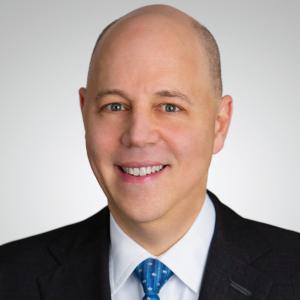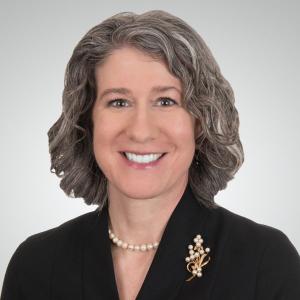Seeking Wisdom:
Lessons Learned Along the Way

Last December, Marc Stern and Lynn Halpern gave a presentation to Bessemer clients as part of our A Fresh Look event series. In a wide-ranging conversation, they shared some of the most important lessons they have learned over the course of their careers working with individuals and families — about fostering effective family communication, designing a lasting wealth plan, avoiding costly investment mistakes, and more. This article provides highlights from that conversation.
In these times — with an evolving pandemic, discord and divide in our society, and so many aspects of our lives seemingly up in the air — it can be easy to get caught up in the headlines of the moment. And while all of us at Bessemer stay up to the minute on the financial landscape, right now, it also feels more essential than usual to step back and reflect on what really matters most.
At Bessemer, we have served individuals and families for more than a century. We have been privileged to play a role in the milestones of their lives — whether a marriage or divorce, a birth or a death, a first job or retirement, earning wealth or giving it away. Our goal in this article is to distill what we’ve learned over many years, and across many circumstances, into our best advice about managing wealth successfully over time.
Powerful connections can come out of an updated discussion.
Communicate Clearly With the People You Love
Communication is our first subject because, time and again, we’ve seen its presence at the core of lasting success for a family — or, unfortunately, its absence at the core of lasting conflict for a family.
An essential step in this communication is often overlooked: telling your family history. Younger family members need to know that the family’s success was never guaranteed. If next-generation members understand the struggle and perseverance that were required to achieve the family’s current circumstances, they may uncover a greater appreciation and a better mindset for the responsibilities that will come their way. Many parents believe their adult children already know their family’s history, and maybe they do, but they’ll take it in differently at age 18 than 28 or 38. Powerful connections can come out of an updated discussion.
Another key component of these conversations is sharing intentions for the future. Many parents worry (understandably) that imparting too much information about wealth too early can be detrimental. But being kept in the dark can lead to inaccurate assumptions. And key messages will inevitably be shared by someone. One sibling telling another sibling about Mom’s or Dad’s thinking can be especially damaging. The reality — the values that are at the heart of your thinking and the rationale for your decisions about the future — will be best coming directly from you, in your own words.
One helpful step for enhancing familial connection is to give family members a voice in family decisions. You might ask a younger family member — when they’re in their late 20s can be a good time — to serve as a co-trustee of a trust, for instance. In our experience, people tend to become more responsible when given more responsibility. A gradually expanding role makes for smoother transitions later.
Design a Wealth Plan That Lasts
The best-laid plans for communication and transition will work well only if the underlying wealth plan is sound. Unfortunately, we’ve seen too many plans fail in one of two ways:
- The wealth plan is overengineered. While some complexity is inevitable, it can become overly burdensome for clients. Indeed, complexity is a ‘cost’ for a wealth plan. The desire for tax savings needs to be balanced with a real-world understanding of what’s practical for family members.
- The wealth plan is locked in on current realities and fails to allow for change. It’s impossible to foresee the circumstances in the years ahead: How will the tax structure change? How will the family structure change? Will interest rates be 1% or 10%?
In our experience, fewer rules make for better outcomes. We think it’s best to choose decision makers carefully and give them broad discretion to deal with unforeseen developments. This is the key to a wealth plan that can last. (See “Choosing a Trustee to Preserve and Transfer Your Wealth.”)
Come Together Through Philanthropy
Among the many things we hope to see for our clients are strong and enduring family connections, and philanthropy can play an instrumental role in bringing loved ones together. We have seen countless instances in client meetings when a family member, seemingly bored during a discussion of stocks and bonds or taxes, springs to life when the agenda turns to making a difference in a community they care about.
When families sit together — at the same table, or even via Zoom or FaceTime — the conversation about values can be a game changer.
Setting up a family foundation or a donor-advised fund can be a powerful step. Donor-advised funds can be particularly helpful when different family members become interested in different causes. If your family has a donor-advised fund, you could name your children or others as advisors to the fund, allowing them to make their own grant recommendations.
Donor-advised funds can also work in tandem with family foundations. We have seen clients keep their foundation intact — so they can continue to work together on the family’s long-time passions — but also create a separate donor-advised fund for each family member so each of them can pursue their own charitable interests as well.
Avoid Destructive Investment Mistakes
As much as we’ve been discussing positive outcomes in this piece, sometimes what’s most important is avoiding a big mistake. This is certainly the case in investing.
It’s a coin toss on any given day whether the markets will rise or fall. But as the days pass, the odds of gain move materially higher. Since 1970, the Dow Jones Industrial Average has risen by an average of two and a half points per trading day. It doesn’t seem like much, but $100,000 invested in stocks in 1970 is now worth more than $23 million. This sounds easy, but our emotions can get in the way.
Since 1970, the market has dropped 2 ½% or more on 176 trading days. We needed to ride out 176 downswings to earn that $23 million. The problem is that when markets move sharply, our instincts are often wrong. When investors are very optimistic, stocks tend to underperform safer assets, like bonds; when they are more pessimistic, future stock returns are often much better than safer alternatives. When it feels obvious to move one way or the other, following the crowd generally isn’t ideal.
You can capture longer-term wishes in a letter to reiterate what you’ve decided and why, and what you hope for in the future.
Prepare Loved Ones for Inevitable Life Transitions
Our final theme is a difficult topic — our own incapacity or mortality. Family conflict often follows these events, but we can take steps now to reduce trouble later. The basics are setting up a power of attorney and a healthcare proxy and writing a will and keeping it up to date. This establishes the right framework — and the right decision makers. (See “Planning for Incapacity.”) Beyond this, we have found three strategies to be effective:
Consider giving equitably in life and equally at death. If one family member who owns, say, a medical practice is on strong financial footing, while another is starting out as a teacher living paycheck to paycheck, everyone is likely to understand why you have prioritized gifts this year to the young teacher. But it’s different at a time of estate disposition. Disparities in treatment of beneficiaries — even when they have sharp differences in personal circumstances — will likely be difficult for them to understand and move on from.
Sell your vacation home when you can no longer use it. While it can be tempting to gift the property to multiple family members, the negatives of this approach loom large. Battles can quickly develop over a host of issues large and small. Who gets July Fourth weekend? Whose kids damaged the second bedroom? Is this the year to spend the money on a new roof? Our advice in most cases is to exit the property when the time comes.
Express your wishes clearly. Resolving sensitive near-term questions such as burial and service preferences can prevent painful debate among family members during an emotional time. More broadly, you can capture longer-term wishes in a letter — supplementing your will — to reiterate what you’ve decided and why, and what you hope for in the future. A letter of wishes can be helpful for trustees as well, particularly when they are allowed to make distributions to any beneficiary for any reason.
Bessemer Is Here to Help
At Bessemer, we see ourselves not just as an investment manager, a wealth planner, and a family office, but as a trustworthy, comprehensive, personal, and dependable partner. We are here, in short, to share our expertise — and our best advice.
Past Performance is no guarantee of future results. This material is for your general information. It does not take into account the particular investment objectives, financial situation, or needs of individual clients. This material is based upon information obtained from various sources that Bessemer Trust believes to be reliable, but Bessemer makes no representation or warranty with respect to the accuracy or completeness of such information. Views expressed herein are current only as of the date indicated, and are subject to change without notice. Forecasts may not be realized due to a variety of factors, including changes in economic growth, corporate profitability, geopolitical conditions, and inflation. Bessemer Trust or its clients may have investments in the securities discussed herein, and this material does not constitute an investment recommendation by Bessemer Trust or an offering of such securities, and our view of these holdings may change at any time based on stock price movements, new research conclusions, or changes in risk preference.

